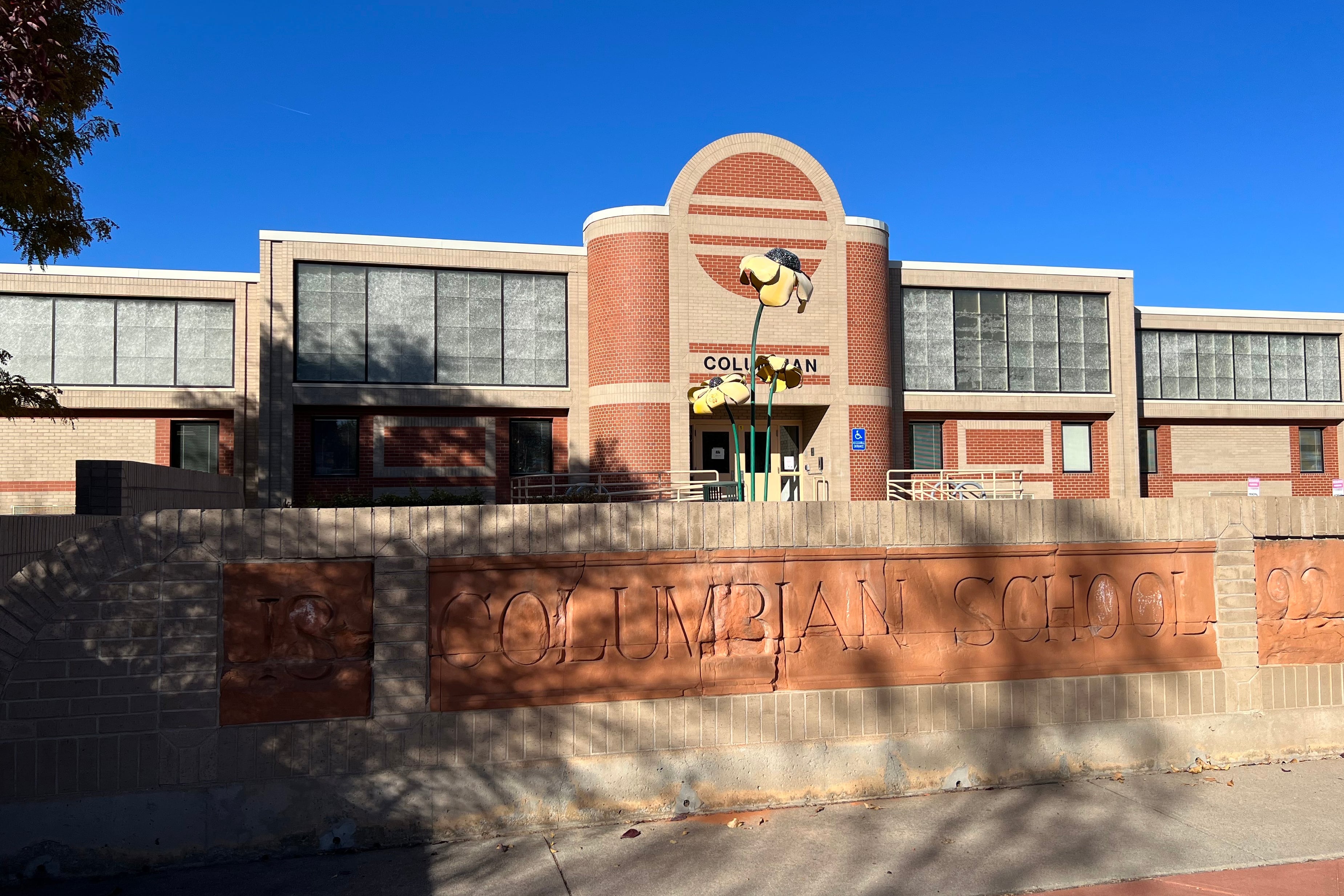Sign up for Chalkbeat Colorado’s free daily newsletter to get the latest reporting from us, plus curated news from other Colorado outlets, delivered to your inbox.
Just ahead of school closures that will make five buildings vacant, the Denver school board is considering a policy outlining how the district should repurpose empty schools.
The proposal lays out a hierarchy for reuse and says the superintendent should not consider the next usage “unless all possible options for the higher priority use have been confirmed as not viable.”
The timing is apt: 10 Denver schools will close or partially close at the end of this school year after the board voted to shutter them for low enrollment. Five of those schools are located in standalone buildings that will become vacant this summer.
In order from the highest to lowest priority, the proposal says empty school buildings should be:
- Repurposed to house new or relocated schools or programs run by the district.
- Used to temporarily house schools or programs run by the district while their regular buildings are undergoing construction or renovation.
- Leased to charter schools operating within Denver Public Schools.
- Repurposed to house “central functions serving the operational or programmatic needs” of district-run or charter schools.
- Leased to private or public affordable housing developers to build housing “that is financially accessible” to the district’s lowest-paid staff and DPS families.
- Sold to private or public affordable housing developers, with the same caveats.
- Leased to private or public developers of “community services that can be reasonably connected to benefits students and families and/or staff.”
- Leased to other private or public developers.
If none of those uses are possible, the proposed policy, known as Executive Limitation 20, suggests DPS should “maintain the vacant property as-is.”
Board member Michelle Quattlebaum introduced the proposal earlier this month, and the board voted this week to advance it for discussion at a future meeting.
“We need a board policy to ensure that, no matter who is the superintendent, that facility usage is happening with a community-centered approach,” Quattlebaum said.
The district has already decided how it will repurpose two of the buildings that will close this spring. Palmer Elementary will become a preschool center. Castro Elementary will become the new home of an existing district-run middle and high school called Summit Academy.
But the fate of the three other buildings — Schmitt Elementary, Columbian Elementary, and the International Academy of Denver at Harrington — is up in the air.
The proposed policy says DPS shouldn’t sell any “centrally located” buildings or buildings “located in a neighborhood that may reasonably be expected to experience enrollment growth in the future.” The policy also says DPS shouldn’t sell buildings with “characteristics that would make the property difficult to replace or replicate in the future.”
And the proposal urges DPS to involve the community in decision making by requiring the superintendent to consult with students, families, and neighborhood residents about building reuse.
It would also require the district to conduct an “equity impact assessment” examining how a particular reuse would affect historically marginalized groups.
Melanie Asmar is the bureau chief for Chalkbeat Colorado. Contact Melanie at masmar@chalkbeat.org.






